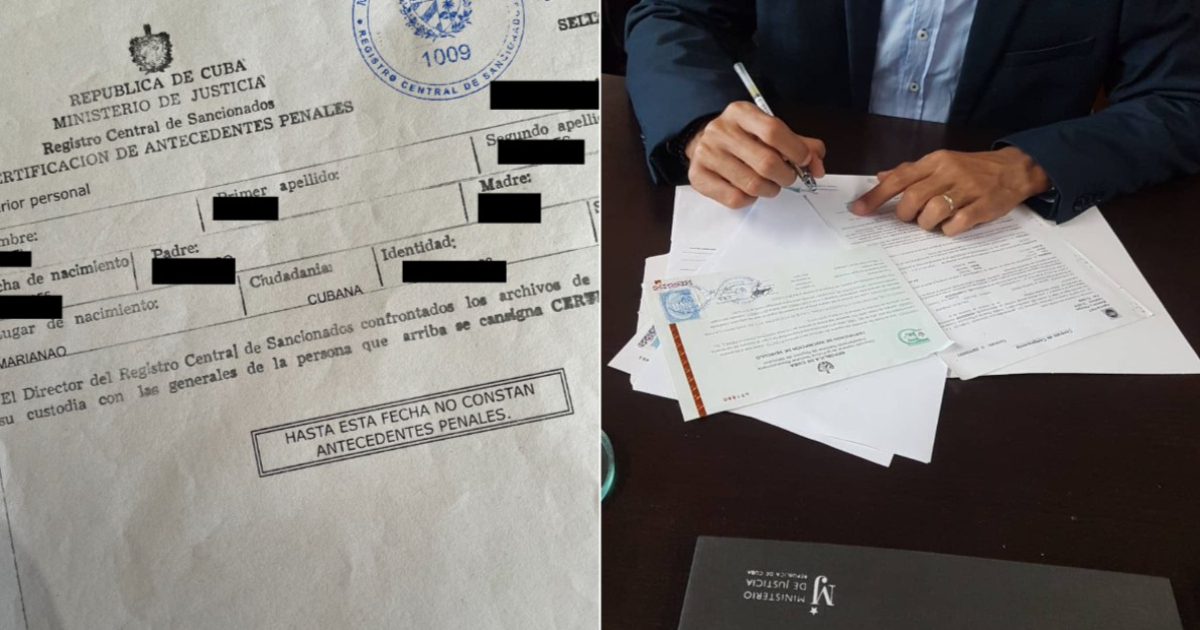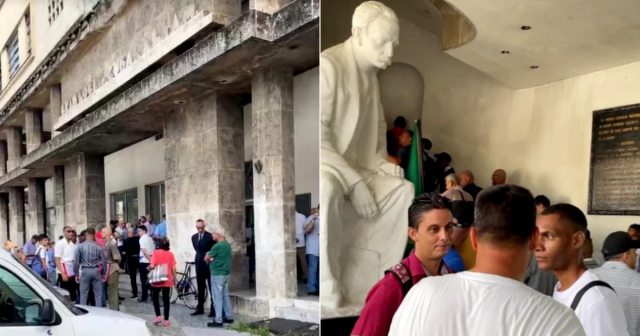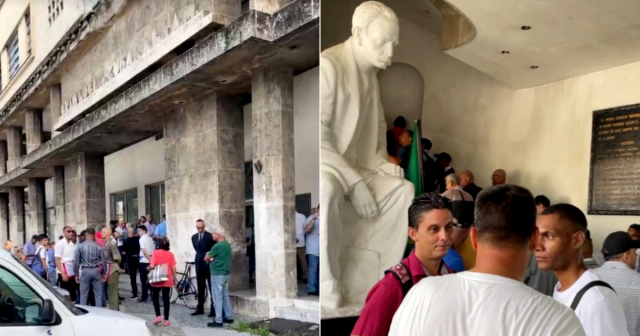
The Bufete Consultores y Abogados Internacionales (Conabi) in Havana will offer, starting this Monday, an online service for obtaining and legalizing criminal records.
Sandra Rodríguez, president and general director of Conabi, presented the new initiative to the Cuban News Agency (ACN), as quoted by the newspaper Escambray, calling it an "achievement," highlighting that clients will no longer need to make an appointment in advance and can carry out the procedure at any time and from anywhere, using their computers or mobile devices.
The directive, without considering the technological and connectivity limitations that affect many citizens, stated that those interested must create a user account at http://www.conabi.cu and, from there, request the acquisition and legalization of their criminal records.
According to the attorney, the payment will be made through the national payment gateways Transfermóvil and EnZona, which includes the service cost as well as the price of the stamp duty. After that, Conabi will proceed with obtaining and legalizing the criminal records.
Customers can track the updated status of their process through the law firm's website, and they will only need to go to the institution's headquarters to collect their documents, the delivery of which will be managed independently from the rest of the institution's services.
Rodríguez showcased the implementation of this online service, stating that it will allow customers to carry out their procedures more conveniently, without the need to attend in person, which, according to her, will ease the burden on the appointment system of the office.
In addition, it was mentioned that Conabi's internal management will improve in speed and accuracy, with a lower margin of error, and that in the future they plan to offer this service to Cubans abroad, who would have to pay through an international platform.
Finally, he highlighted that the new service was developed in collaboration with the private technology company Futura Sit, with which Conabi has agreements since 2022, and that this service is integrated within the corporate modules of Legalsit, a software designed for the comprehensive management of legal services.
During the initial phase of the project, they will limit themselves to accepting 50 applications per week as part of a pilot test, as explained by Leslie Carrodeguas, Marketing and Communication specialist at Conabi, to ACN.
The objective of this measure is to improve the mechanisms implemented for this service and to gradually increase the response capacity as the system becomes more established, he noted.
He indicated that clients will only be able to request the obtaining and legalization of criminal record certifications for themselves and for relatives up to the fourth degree of consanguinity, including parents, children, grandchildren, spouses or common-law partners, grandparents, siblings, uncles, and nephews, in line with the current policy for the legalization of all types of documents.
Conabi has determined, in line with Law 149/2022 "On the protection of personal data" and its complementary regulations, that it is the applicant's responsibility to ensure they have the necessary authorization from the holder before requesting, obtaining, legalizing, collecting, and using the information for the intended purposes, always with prior approval from the holder.
The fee will be the same as for in-person applications: 1,250 CUP for obtaining it, 375 CUP for legalization.
The value of the stamps is adjusted according to the holder's residence: for residents in Cuba, the tax is five CUP for obtaining and 20 CUP for legalization; on the other hand, those residing abroad will have to pay 125 CUP for obtaining the document and 500 CUP for its legalization, the ACN indicated.
In last May, after a year in which the Ministry of Foreign Affairs (MINREX) acknowledged the existence of delays in the legalization of documents, the Cuban Foreign Minister, Bruno Rodríguez Parrilla, stated that those delays have been reversed.
The minister said that "the situation of delays affecting the document legalization service has been reversed," pointing out a positive result in "the measures adopted since last year."
The increase in the procedures for document legalization by Cubans before the MINREX, as well as the constant delays, has led the Cuban government to consider the possibility of adhering to the Apostille Convention, Rodríguez said in March.
In a Round Table discussion, where the minister referred to the projections of Cuban foreign policy, an important point was the situation regarding the legalization of documents, a process that is requested by the population and receives a lot of criticism due to the slowness of the process.
What do you think?
COMMENTFiled under:






